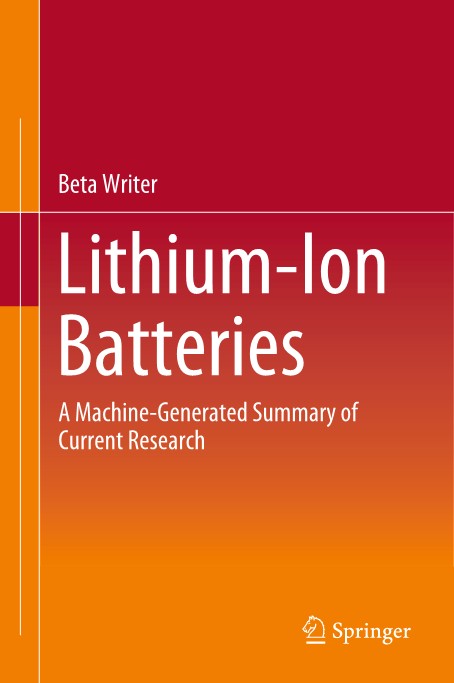
Springer Nature, an academic publishing company, has published the first book to edit text based on machine learning algorithms.
The algorithm was developed by Johann Wolfgang, Goethe University’s Applied Computational Linguistics Institute (ACoLi) in Frankfurt, Germany. Of course, it was not created for a bestselling novel like Harry Potter. The title of the book is Lithium-Ion Batteries (A Machine-Generated Summary of Current Research).
This book is a summary of research papers done in the past about lithium-ion batteries. Over the last three years, more than 53,000 research papers on lithium-ion batteries have been published. Lithium-ion batteries are used in smartphones, watches, and even electric vehicles. It is a familiar and highly popular research field. If the new breakthrough research is successful, the surrounding products are likely to develop innovatively.
Anyway, for this reason, related research papers are poured out. It is quite difficult to cover all this. Springer Nature is trying to help people who are looking for data through electronic publishing using machine learning. The algorithm finds articles on behalf of people.
Depending on the material, the algorithm uses machine learning to find previously published papers on behalf of the person. It extracts only those that are related to the field of interest, analyzes the essays in the Springer Nature online database, and concentrates them to produce various research areas divided into chapters. You can summarize and automatically extract chapter-by-chapter theses, and you can also go to your original thesis by clicking on the link to view more detailed content by attaching a hyperlink to your original article.
This condensed paper guide is 180 pages in volume. Lithium-ion batteries can be helpful for those who study day and night. The algorithm is not limited to lithium ion battery research, but can be applied to other fields as well. Be able to make a booklet based on the subject of the request. For more information, please click here .

